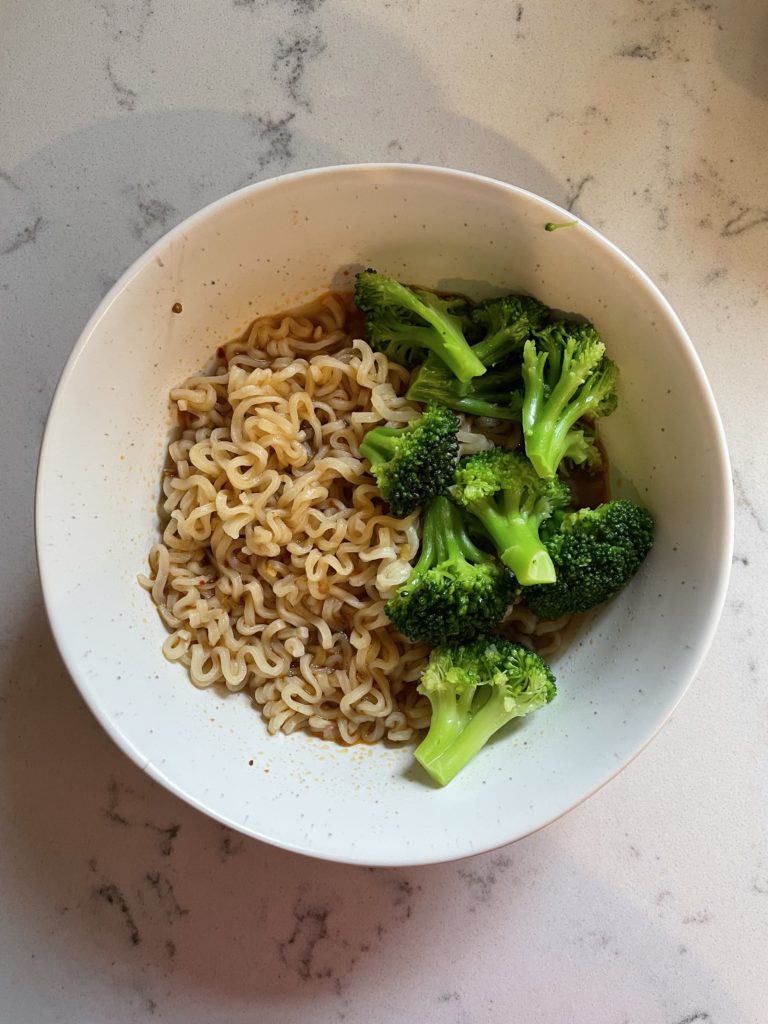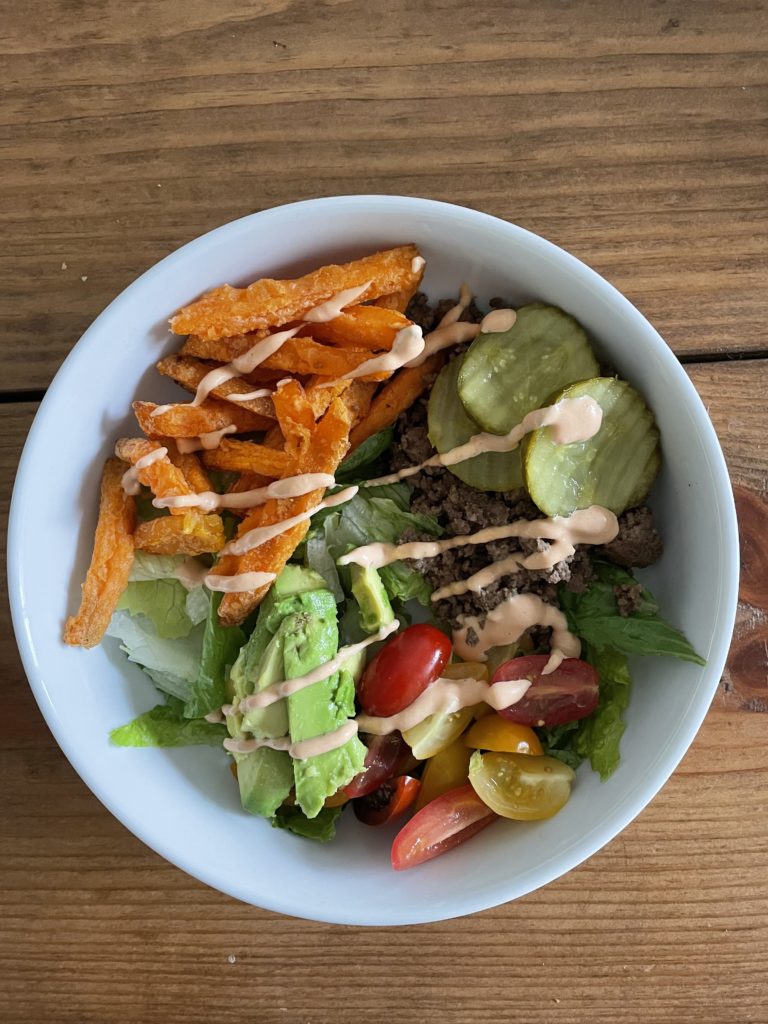A Dietitian’s Favorite Tip to Save Money on Groceries
Groceries are getting so expensive it’s…maddening. Average prices in the US have increased 13 percent (!!!) over the past year.
Planning and shopping for food to feed yourself 7 days a week was already hard enough, and now we get to experience sticker shock every week…if the items we need are even in stock in the first place.
Factor in kids who need 3 meals and 27 snacks every day, and maybe you’re like me, wanting to scream into a pillow every weekend when my husband asks, “So, what do we need from the store this week?”
Is my frustration for grocery shopping coming through?
I can’t blame it all on inflation. The grocery store just isn’t my happy place (except for Trader Joe’s and Costco 
However, I am the one who puts the list together and keeps fridge and pantry inventory.
Sometimes it still feels like a lot, but I’ve come up with a pretty good system to make things easier. Over the years I’ve noticed that this strategy isn’t only saving my sanity – it’s saving us money on the weekly grocery bill, too.
Maybe my shopping strategy can help save money on groceries for you, too.
Weekly menu planning.
Dare I call it a life hack? It sounds so simple that I almost feel silly sharing as if it’s some breakthrough in the world of grocery shopping. But at the same time, it really does feel like a skill.
And it’s a skill that can be especially difficult to form into a habit for busy families. But this is the number one thing that has helped us save money and waste less on groceries.
Plus having our meals planned out saves me from staring into the pantry wondering what I should make every night.
Here’s my method
We keep it super simple. As evidenced by the photo above, there’s no aesthetic “Weekly Menu” board (but you can use one!) I just keep my list in the Notes app on my phone or use a Meal Prep Pad.
We plan to cook two or three nights per week, and eat leftovers two nights per week.
So, our week typically looks like this:
Sunday: Cook
Monday: Leftovers
Tuesday: Cook
Wednesday: Leftovers
Thursday: Cook
Friday: Eat Out
Saturday: No plan

One night is typically a simple “one night” meal. Something like breakfast for dinner, spaghetti, soup and sandwiches, or an “on your own” kind of night.
The other two nights that we cook are larger portions that leave us some leftovers to work with. On Friday, we plan to eat out and we don’t stress much about the rest of the weekend!
Elephant in the room: Leftovers
If you’re grossed out by leftovers, I hear you. But this is still doable! Maybe try something that keeps it’s quality the second day (or tastes even better), like soup or chili. Or, buy rotisserie chicken and use that two different ways. In a big salad and in quesadillas, for example.
Eating leftovers doesn’t have to mean you’re repeating the exact same meal. Just repurpose the components that require the most time and effort.

If you’re not sure where your schedule will take you some weeks, plan for meals that don’t need to be cooked ASAP.
Plan your menu so food won’t be wasted if you don’t use it.
While we’re here – It’s okay for your family’s menu to include frozen pizza or ramen with frozen broccoli. IT’S OKAY.
Have picky eaters in your house? We can work with that too.
The key here is to include a “safe” food with every meal you make. Offer the other stuff too because exposure is everything. But plan to include something you know they’ll eat with every meal you make – no need to make separate meals!
A little planning will help save money on groceries
This strategy is adaptable for pretty much any situation your family may have. You can plan to cook more or less often. You can start with breakfast or lunch menu planning instead, or add them on once you master dinner.
The beauty of this grocery shopping tip is that you can make it your own! That’s key for sticking to a new habit, right?
Having a plan will help you avoid:
– Buying a cart full of random groceries
– Decision fatigue at meal time
– Wasting groceries
– Blowing your food budget on DoorDash
In the end, the goal is to make feeding your family a little less stressful! What’s your best tip to save money on groceries? Let’s discuss in the comments!

Source by www.blogilates.com




